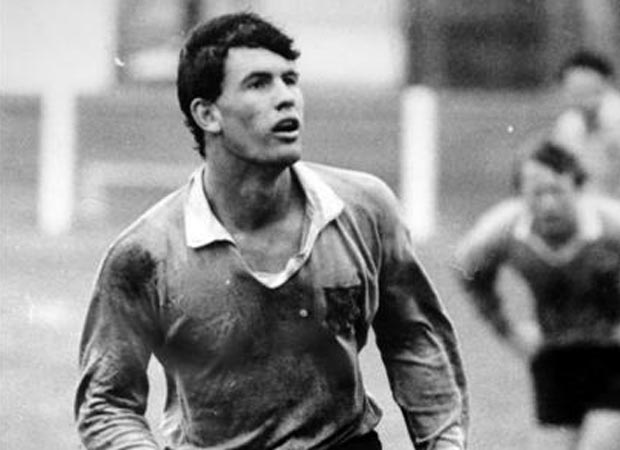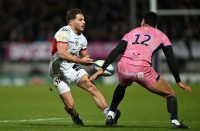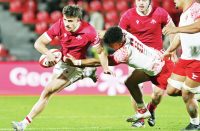 They could be found in Auckland on Thursday night sinking some grog and spinning old yarns worthy of the occasion – a Sixties reunion bash for All Blacks in their 70s who refuse to be eclipsed.
They could be found in Auckland on Thursday night sinking some grog and spinning old yarns worthy of the occasion – a Sixties reunion bash for All Blacks in their 70s who refuse to be eclipsed.
The record they set for the longest winning streak in Test match history during the second half of the Sixties still stands, enduring testimony to the old timers and their collective defiance in withstanding an almost annual assault to be knocked off their perch.
The trail they began blazing almost half a century ago and kept blazing throughout a four-year period which included Sunday bonding on Bondi beach has still to be surpassed. Richie McCaw has won everything there is to win but neither he nor his celebrated contemporaries can beat a bunch of compatriots old enough to be their grandfathers.
Having equalled their feat of 17 straight Test victories as Nick Mallett’s Springboks had done in 1997 only for England to trip them up at Twickenham, McCaw and his troops were undone by last week’s draw in Sydney. Its historical significance was never going to be lost on those of us who marvelled from long-distance at the All Blacks of our youth.
On top of everything else, men like Brian Lochore, Wilson Whineray, Waka Nathan, Colin Meads, Kel Tremain, Chris Laidlaw and Earle Kirton had a quality which sets them apart from the current team. The fact that they were seen so seldom in the British Isles gave them a mystique which has long since been stripped and shredded by the over-exposure of Test match rugby.
Thursday’s dinner at the rugby club in Ponsonby had been timed to renew friendships with Wallabies from the Sixties over the Bledisloe Cup weekend.
That it happened to coincide with last week’s failed attempt to erase Lochore and Co from the record book would have put a little more jauntiness into the step of the survivors.
Despite their 17-match total having been equalled, it deserves to stand alone as unquestionably the longest winning run of all time. Between August 1965 and June 1969, the All Blacks beat the Springboks, the Lions four times, Australia three, won every Test in Europe in 1967, a home three-match series against the France Grand Slam team of 1968 and finished up thrashing the 1969 Five Nations’ champions, Wales.
Kirton was the fly-half, or first-five in Kiwi parlance, for the last 11 of those matches before immersing himself into the English game as captain, and then coach, of Harlequins.
“I used to pinch myself every time I played in that All Black team,” he told me during a Ponsonby reunion so awash with nostalgia that merely to keep your head above water took some doing. “We had forwards who were 20 years ahead of their time.
“The likes of Kel Tremain, Waka Nathan, Colin Meads and Brian Lochore would have held their own in any era because they were such great ball players.
“We were brilliantly coached by Fred Allen. We had two wonderful captains in Lochore and Wilson Whineray but for all that winning 17 Tests in a row was more difficult back then than it is now.
“We played five Tests a year at the very most. Now they play that many in a summer. What also made it harder in our day was that when we beat Canada, Argentina and Fiji we were never credited with a Test win because they weren’t considered worthy of full international status.
“The Sixties were a hell of a good time for New Zealand and we had a hell of a good time. They don’t have as much fun today. We always made a point of fraternising with the opposition and that’s why it’s wonderful to be renewing so many old Aussie friendships.
“Whenever we played in Sydney, we’d spend the Sunday on Bondi beach for the Bondi Picnic. They’d close part of the beach just for us so we could do all sorts of daft things.
“We all share a concern for the future of the game. The tackle law still has to be sorted out and last week’s awful match in Sydney was a reminder that the game needs to be more attractive.
“The most striking difference between our time and now is that the players are bulkier, not necessarily more skilful but bigger. They’re fitter, too. Farmers were the guts of our team and they kept fit through their way of your life.
“You didn’t have two 130kg props bearing down on you then like they do now. Two fellas weighing 260kg smashing into a small guy is a recipe for dislocated shoulders and, worse still, spinal damage.
“No wonder mothers are saying they don’t want their little Jonathan to play rugby so they take him off to play soccer instead. There’s too much bash.
“Instead of going for the gaps, they go for the big hit.
“Bryan Williams (former All Black wing and NZRFU president) and I have been talking about exactly the same thing at the dinner. We sounded like those two old guys from The Muppets.”
The Waldorf and Statler of the Sixties All Black show duly changed the subject on a night when they remembered old colleagues who died far too young.
Tremain and the mighty Ken Gray passed away at 54 in 1992 followed by full-back Michael Williment two years later at the same age. Sir Wilson Whineray died in 2012 at 77, fly- half Mac Herewini three months ago at 74.
Records, as Kirton points out, are made to be broken but this one is still intact, a lasting monument to those who made it possible.
*This article was first published in The Rugby Paper on August 24.























